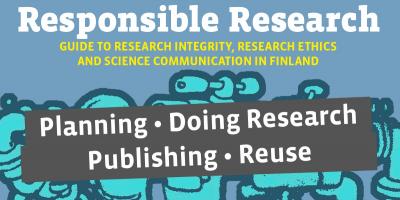
Publicity and openness turn research into science. Science communication is about passing on information and interaction within the scientific community and outside it. Science communication is not merely about communicating research findings. Responsible science communication increases confidence in scientific knowledge. Scientific publication is an important way for researchers to gain credit and therefore it is important that authorship is defined so as to fairly reward researchers.
